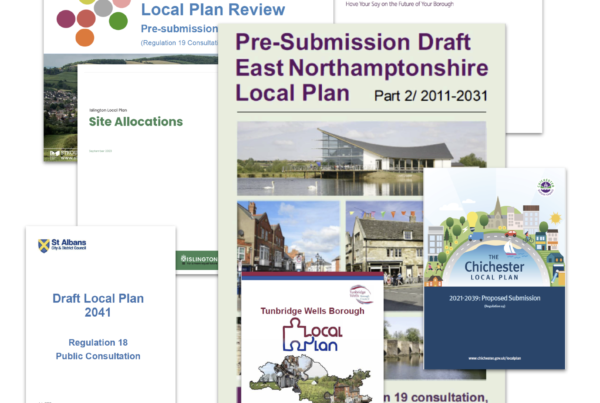The Royal Institute of Chartered Surveyors (RICS) has published a new professional statement on Financial Viability Assessments (FVAs), outlining a series of ‘mandatory requirements’ on how its members should conduct themselves when practising planning viability.
5 key takeaways for RICS members:
- When preparing a report, RICS members must provide a statement to the local authority confirming that ”no performance related or contingent fees have been agreed”. Such fees impair objectivity, calling into question the weight that can be attached to its content.
- To help stakeholders avoid confusion when reconciling figures included in FVAs with figures reported in the market, RICS members will be required to disclose a site’s existing use value, landowner premium, market evidence, alternative use value and all other supporting considerations when establishing benchmark land values.
- There must be a clear distinction between “preparing and reviewing a viability report and subsequent negotiations”. This ensures that objectivity and impartiality will be maintained throughout, clarifying where respective parties are seeking to resolve differences of opinion through Section 106 agreements.
- RICS members must allow adequate time to carry out FVAs, setting out clear timeframes that are proportionate to the scale of the project. If the timeframes need to be extended, “the reasons must be clearly stated, both at the time and in the subsequent report’.
- FVA’s “must be accompanied by non-technical summaries of the report”. This is so that ‘non-specialists’ can better understand the conclusions drawn from the assessment and the figures used to support them.
The report, ‘Financial viability in planning: conduct and reporting’, follows a High Court ruling last year, in which the judge urged professional bodies to rethink their existing guidance in a bid to resolve misunderstandings surrounding market valuation techniques. With the London Deputy Mayor and the London Borough of Islington echoing this sentiment in an open letter to RICS in October, calling on the body to amend its ‘Financial viability in Planning’ (2012) guidance note, the report is both a welcome and timely update.
Recognising that active and assured participation from stakeholders requires a greater level of clarity, the issue of transparency takes centre stage in the new statement, emphasising the need for a more ‘collaborative approach’ involving all interested parties, from developers and landowners to the LPA and business community.
As such, the most notable development is that many of the new requirements operate on the basis of information sharing, demanding that all RICS members engaging in FVAs actively disclose evidence of the process undertaken across a number of different topics. This includes contingency fees, conflicts of interest, justification of evidence, benchmark land values and sensitivity analysis.
This commitment to transparency reflects Planning Practice Guidance (PPG) which states that “Any viability assessment should be prepared on the basis that it will be made publicly available other than in exceptional circumstances”. (Paragraph 021, reference ID 10-021-20190509)
Another significant change is the identification of existing use value (EUV) as the new starting point for assessing the uplift in value which is required to incentivise the release of land. This signals a shift away from using market value as the benchmark ¬- a decision that will no doubt be supported by many local authorities, such as the London Borough of Islington who highlighted the use of EUV as a more appropriate method in their letter last year. Under this method, the purchase price of the land itself will no longer be a reason for failing to comply with policy, though it may still give an indication of what the uplift to the EUV ought to be.
In addition to the professional statement, RICS will be publishing a 2nd edition of their guidance note, ‘Financial Viability in Planning’, in September 2019. This is expected to reflect changes in the National Planning Policy Framework (as amended February 2019) and PPG 2018 (as amended in 2019).
Troy Planning + Design specialises in advising on planning and development matters.
Please get in touch if you would like to discuss your project: info@troyplanning.com







